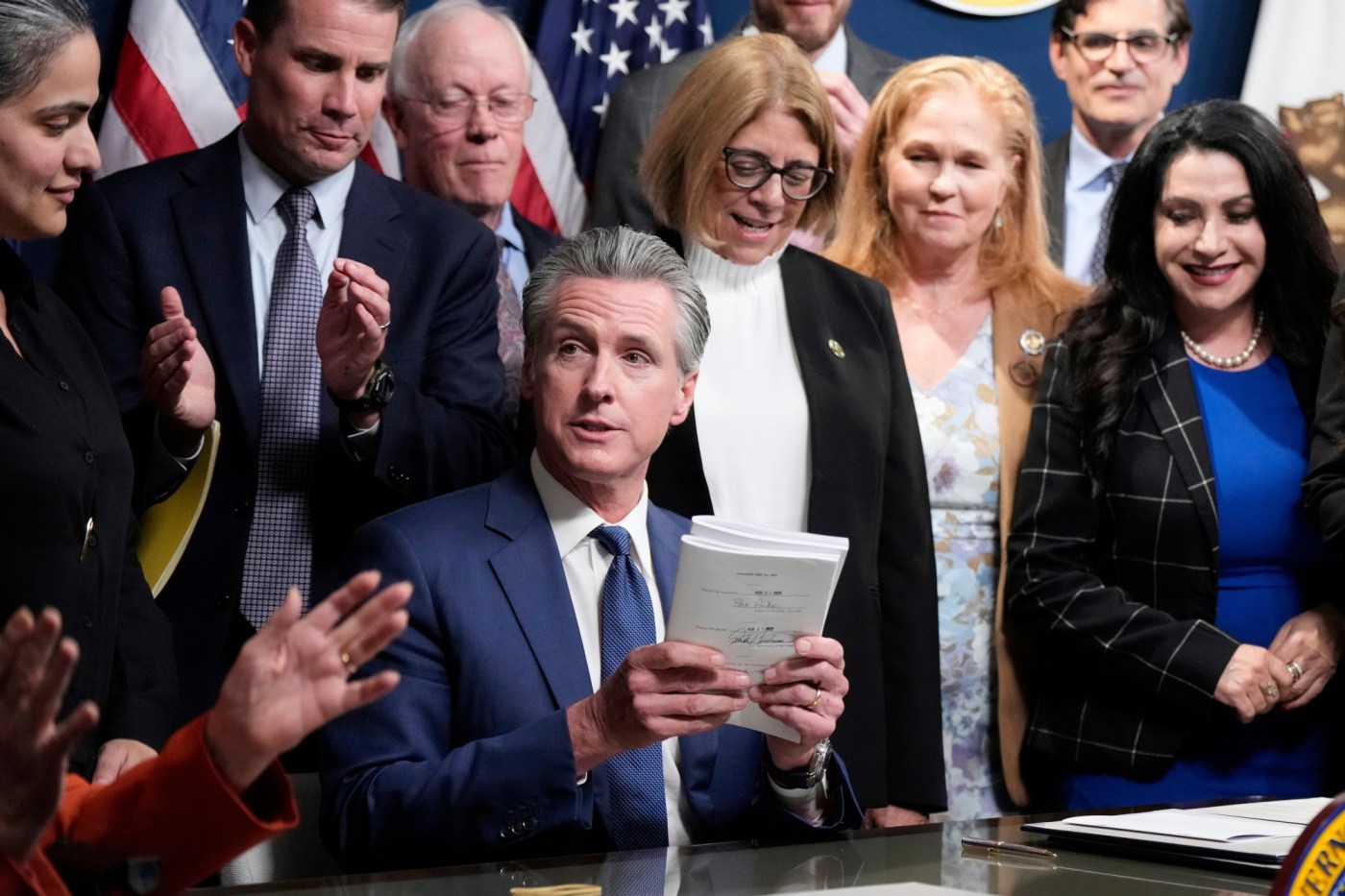California’s political landscape is witnessing a heated debate over Governor Gavin Newsom‘s recent redistricting proposal, which critics argue could undermine the state’s independent redistricting commission. As discussions intensify, the implications of this plan may have far-reaching consequences for both political representation and taxpayer interests.
Newsom’s strategy appears to center on positioning himself as the “anti-Trump” in preparation for a potential presidential bid. His recent trip to South Carolina has raised eyebrows, suggesting a broader political ambition. Yet, his focus on challenging the independent redistricting commission may backfire, particularly given the mixed public sentiments surrounding the proposal.
Polling data presents a challenging picture for Newsom. Despite his claims of garnering 57% support for his initiative, a Politico poll indicates that only 36% of registered voters favor returning redistricting authority to state lawmakers. Most voters seem inclined to maintain the current independent panel that has overseen district drawing since its establishment.
The financial backing for opposition efforts is also noteworthy. Nationally, Republicans are reportedly in a stronger financial position than their Democratic counterparts. Former House Speaker Kevin McCarthy has pledged to raise $100 million to combat Newsom’s plan at the ballot box. Notable donors such as Charles Munger, Jr. have previously contributed significantly to campaigns aimed at preserving independent redistricting.
In terms of opposition voices, Arnold Schwarzenegger, California’s former governor, has publicly denounced any initiatives that would lead to increased gerrymandering, including those in both Texas and California. This sets the stage for a formidable coalition against Newsom’s proposal.
The issue of hypocrisy has also drawn attention, particularly regarding comments from Assembly Speaker Robert Rivas. Following a lawsuit filed by Republicans against the redistricting plan, Rivas stated, “Republicans filed this lawsuit to stop Californians from voting – that’s anti-American and anti-democratic.” This statement stands in stark contrast to actions taken by Rivas and Newsom last year, when they sought to remove a qualified initiative from the ballot, thereby limiting voter participation on the Taxpayer Protection and Government Accountability Act.
Another facet of the controversy involves accusations of dishonesty surrounding the redistricting process. Initially, Newsom assured voters that new district maps would be included in the voter guide for transparency. However, recent communications from Democrats indicate that the maps will only be available on a website, raising questions about their commitment to transparency.
The debate has also prompted skepticism from media outlets. For instance, the San Francisco Chronicle has reported that by various measures of gerrymandering, the proposed maps are less equitable compared to the current ones, countering claims made by state officials that the new districts are more compact and respect city and county borders.
Despite the controversy, there may be a positive outcome for taxpayers. According to Politico, Newsom’s gerrymandering initiative could effectively eliminate the likelihood of lawmakers considering any tax increases before the upcoming legislative session ends in March 2024. For taxpayers, this development may bring some relief amidst the ongoing political maneuvering.
As the redistricting saga unfolds, California residents and political observers alike remain vigilant. The outcome will likely influence not only the state’s electoral landscape but also the broader discussion on governance and representation in the coming years.
